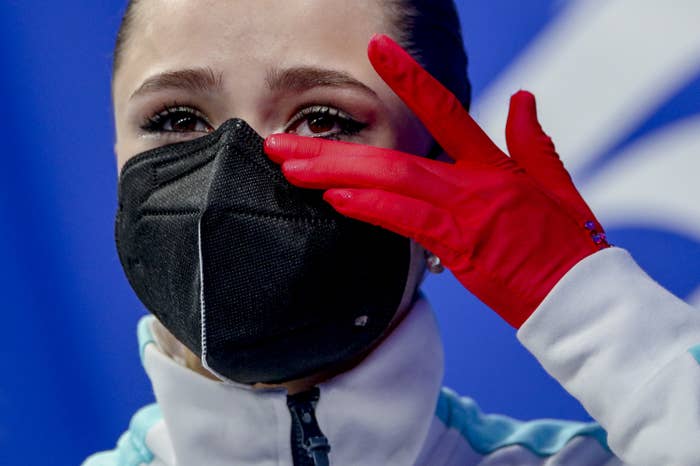
Tears, smiles, and temper tantrums: The 2022 Winter Olympics have seen it all — mainly during the women’s figure skating competition, where a doping controversy involving a teen Russian skater led to one of the most dramatic and, as one columnist put it, saddest nights in the history of the sporting event on Thursday. But what led to this?
We’ve answered all your burning questions about this on-the-ice and off-the-ice drama.
First question: What is going on?
Let’s start with Kamila Valieva testing positive for a banned heart medication called trimetazidine, which may help with endurance. However, the 15-year-old was still allowed to compete because according to the Court of Arbitration for Sport, banning her would cause “irreparable harm” because she’s a minor. This, of course, brought up questions of fairness, considering Sha’Carri Richardson, who is Black, was banned from the Tokyo Olympics in 2021, after testing positive for cannabis. But it also raised concerns over how the young skater was given the medication and what the adults in her life were doing to protect her.
The controversy sparked backlash against Russia, which was already on thin ice after being banned from the 2018 Olympics over a doping scheme.
"This appears to be another chapter in the systemic and pervasive disregard for clean sport by Russia," Sarah Hirshland, CEO of the United States Olympic & Paralympic Committee, said in a statement responding to Valieva's doping test result.
So if Valieva was allowed to compete, how did she do?
Not great, which was a relief for the International Olympic Committee (IOC) who said it would hold off on a medal ceremony if Valieva got gold, silver, or bronze. In a huge upset, Valieva, who was the favorite to win the gold, ended up in fourth place after falling several times during her free skate.
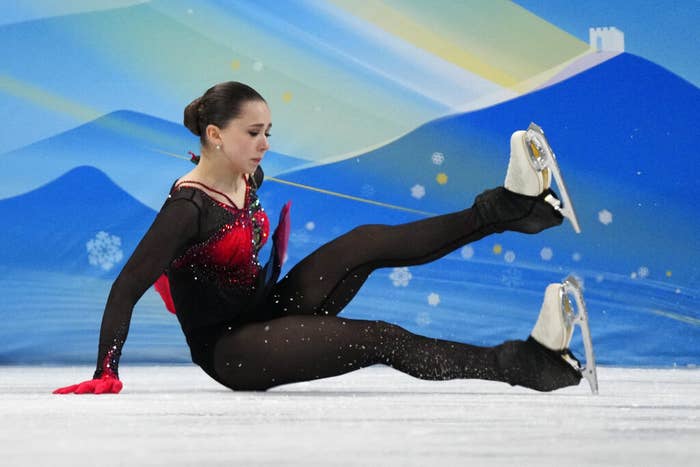
When Valieva got off the ice, her coach Eteri Tutberidze — notably hard on her skaters — reprimanded the teenager, who was in tears. Cameras caught Tutberidze asking Valieva, “Why did you let it go? Why did you stop fighting? Explain it to me, why?"
IOC President Thomas Bach said it was “chilling” to watch the “tremendous coldness” with which the distraught young athlete was received by her “closest entourage.”
“Rather than giving her comfort, rather than to try to help her, you could feel this chilling atmosphere, this distance,” Bach said at a news conference Friday.
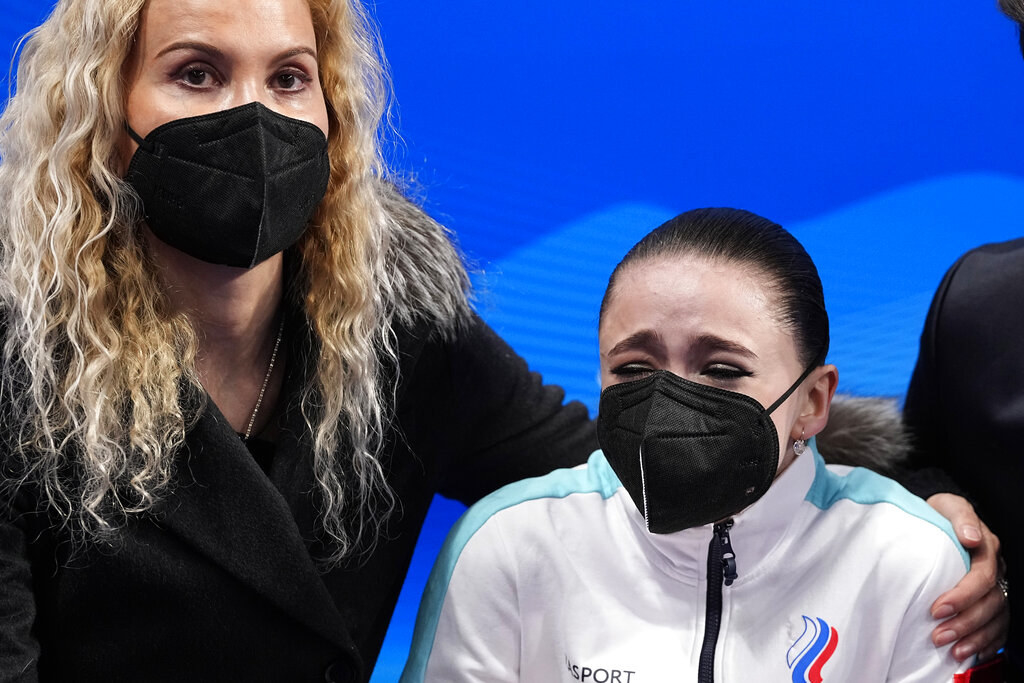
So who won?
Valieva’s teammates did: Anna Shcherbakova, 17, and Alexandra Trusova, 17, won gold and silver, respectively. Japan’s Kaori Sakamoto, 21, won bronze.
Sounds like good news!
Apparently not. Trusova threw a fit because she came in second. “I hate this sport!” she was heard shouting at the side of the rink.
Vowing to never go on the ice again, Trusova was heard lamenting on the camera, “Everyone has a gold medal, everyone, but not me! I hate skating. I hate it. I hate this sport. I will never skate again. Never," she said.
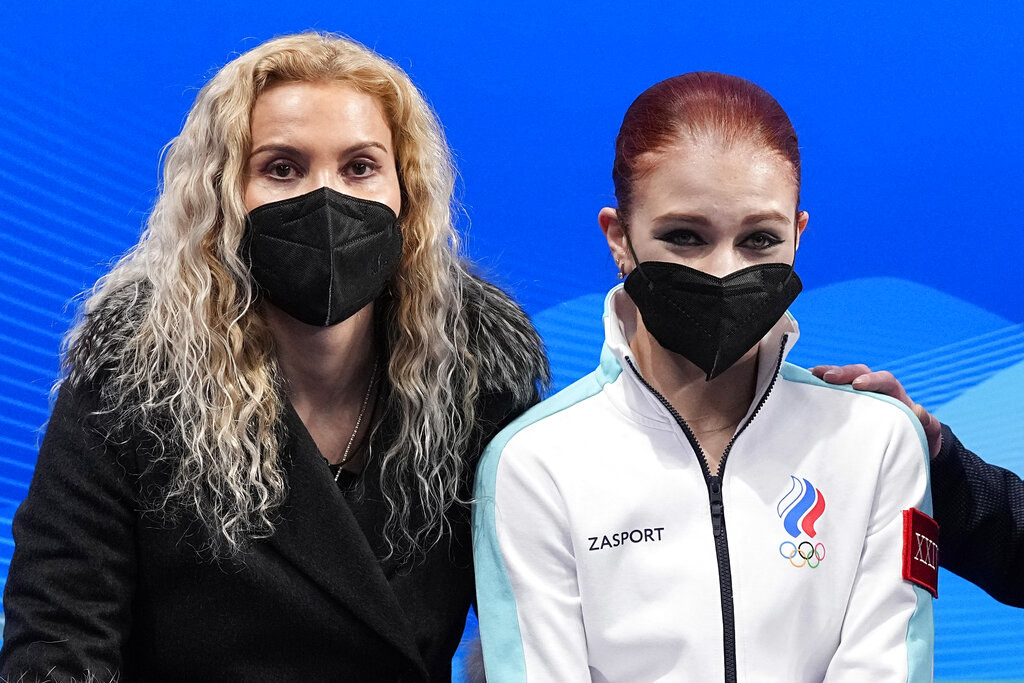
After cameras panned from her temper tantrum to Shcherbakova, the winner of the gold, viewers saw her sitting alone in disbelief and unsure of how to act. Everyone appeared to be too concerned with the other girls to acknowledge the gold medalist. What was supposed to be a joyous once-in-a-lifetime celebration for Shcherbakova turned out to be a lonely moment that the whole world got to watch.
“I still don’t comprehend what has happened,” said Shcherbakova. “On the one hand I feel happy, on the other I feel this emptiness inside.” Both Shcherbakova and Trusova finally made it to the podium to accept their medals.
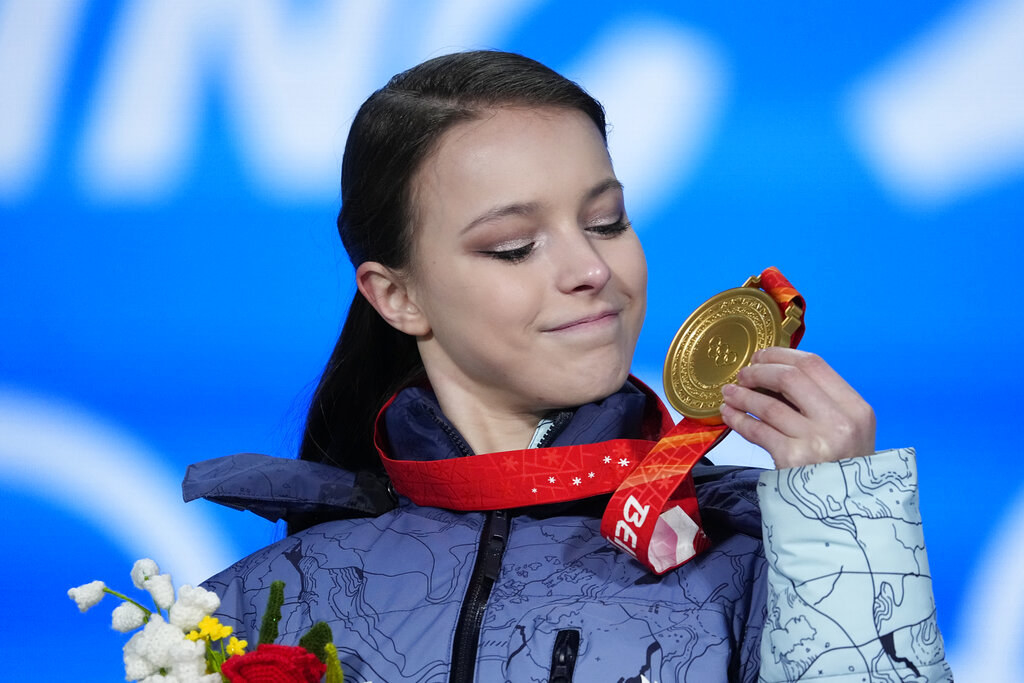
What happens now?
The saga continues. The World Doping Agency has been asked by the IOC to investigate Valieva’s entourage, which includes her coaches, doctors, and other adults around her, Reuters reported.
“This was no way to treat a 15-year-old under such mental stress,” Bach, the IOC president, said on Friday, adding that he was disturbed by the pressure on the teenager.
“I saw the pressure on her, it was beyond my imagination for a girl of 15,” Bach said. “To see her struggling, trying to compose herself, you could see the immense mental stress she was under."
He emphasized the importance of investigating her entourage to determine how she tested positive for the banned drug, saying, “She's a minor. Doping very rarely happens alone, there is always an entourage.”
